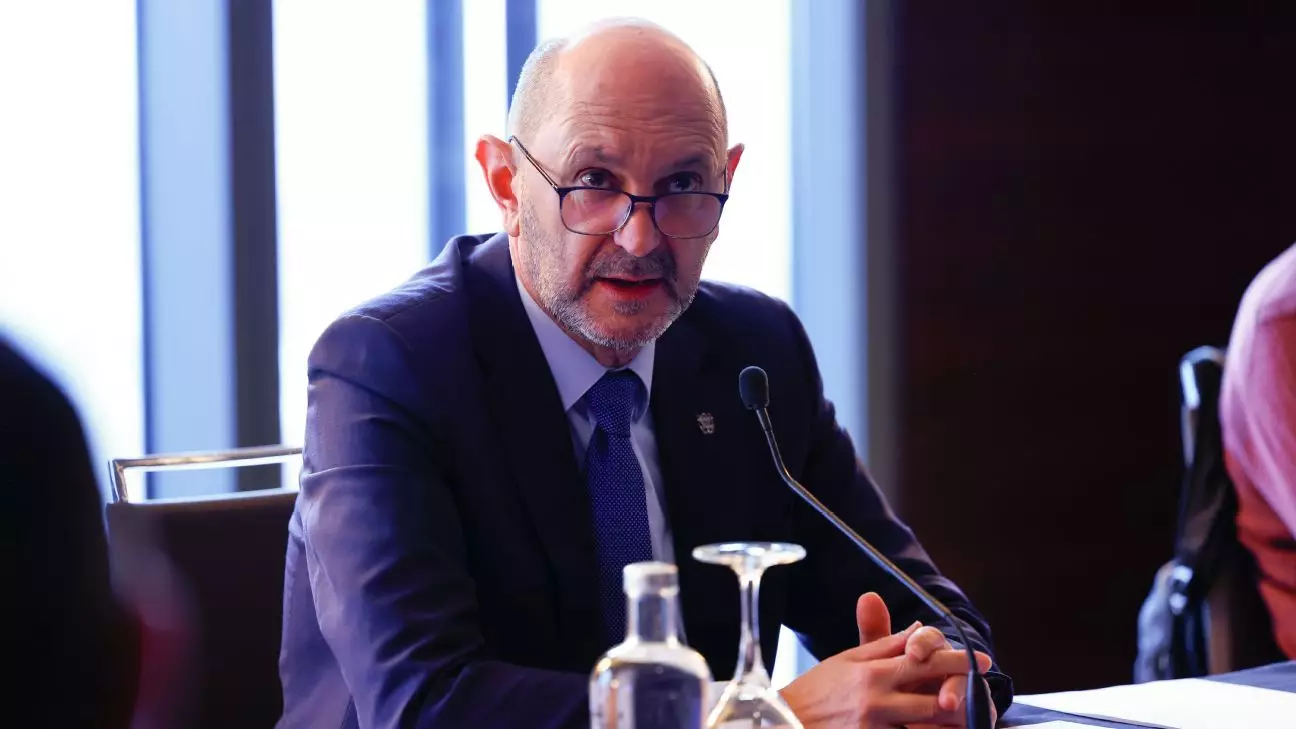The Royal Spanish Football Federation (RFEF) has recently entered a phase of transformative leadership with the election of Rafael Louzan as its president. Following a tumultuous period characterized by scandals and administrative upheaval, Louzan’s ascent is critical not only for the federation but also for the broader landscape of Spanish football. His election, which took place shortly after Spain’s selection as a co-host for the prestigious 2030 World Cup alongside Morocco and Portugal, comes with heavy responsibility and expectations.
At 57, Louzan, a representative of the Galician Football Federation, has been involved in the RFEF’s executive committee since 2019, making him a seasoned figure in Spanish football administration. He triumphed over his only opponent, Salvador Gomar, to secure a four-year term. However, Louzan’s candidacy raises eyebrows due to a previous seven-year ban on public office due to misconduct while serving as the president of the Pontevedra Provincial Council. Although he is contesting this decision in Spain’s supreme court, it casts a shadow over his legitimacy and the overall perception of integrity within the RFEF.
The recent history of the RFEF is marred by controversy, particularly following the high-profile resignation of former president Luis Rubiales. His unsolicited kiss to player Jenni Hermoso after Spain’s Women’s World Cup victory in August 2023, not only led to his exit but highlighted severe deficiencies in leadership and accountability. Following Rubiales’ departure, his successor, Pedro Rocha, faced his own troubles, resulting in a two-year suspension by Spain’s Sports Council for serious infractions. This series of events paints a picture of instability that Louzan must navigate carefully.
The gravity of the situation has prompted the Spanish government to establish a special committee aimed at restoring order within the RFEF. This governmental oversight illustrates the seriousness of the ongoing crisis and aligns with FIFA’s warnings regarding the necessity for proper governance. FIFA made it clear that without a decisive electoral outcome by the end of 2024, Spain could jeopardize its opportunity to host World Cup matches, amplifying the stakes for Louzan as he assumes leadership.
As Louzan embarks on his presidency, he must chart a path toward rebuilding trust and stability within the RFEF. His leadership will be crucial in addressing existing challenges and reshaping the federation’s image. The road ahead requires profound changes and strategic planning. The trust of stakeholders, from players to fans, hinges on his ability to foster transparency and accountability. Louzan’s mission will be not just about steering the federation during this transitional phase but also about laying down a new foundation for the future of Spanish football. The countdown to the 2030 World Cup begins, with the world watching how this pivotal leadership adjustment unfolds.

